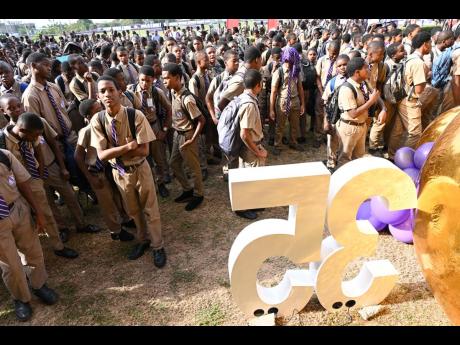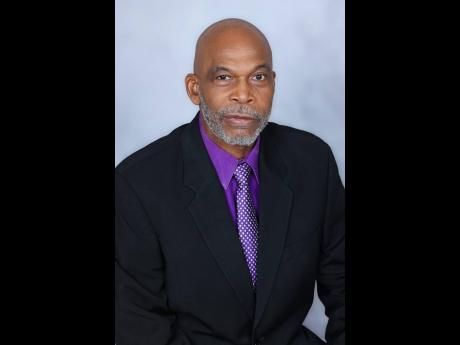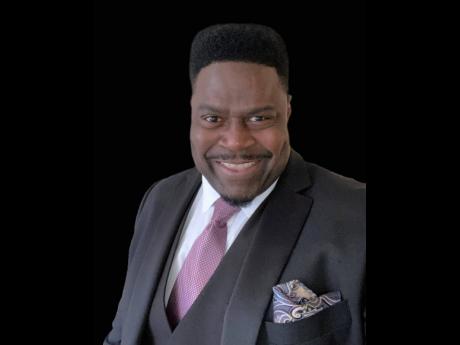Patrick Dallas and Garth Dallas | In defence of Champs
A response to Basil Jarrett and Lascelve Graham
Basil Jarrett wrote an article in The Gleaner on March 21, titled ‘No Champs for me this year’. On March 31, 2024, Lascelve Graham followed up with ‘Champs and its crippling effect on socialisation system’. Both these articles have sparked considerable discussion regarding the evolving nature of high-school athletics, particularly in Jamaica.
While both Jarrett and Graham raise valid concerns about the commercialisation and potentially misplaced priorities within the Champs competition, their analyses lack the nuance necessary to fully appreciate the multifaceted impact of this event. It is also important, we believe, to acknowledge that while these factors may exist, they do not negate the intrinsic value of the event. Rather than focusing solely on the negatives, it’s imperative to recognise and celebrate the achievements and opportunities that Champs affords young athletes.
We must recognise the organised structure of the athletics programme in Jamaican high schools, and the development and exposure provided to our student athletes. This programme has been instrumental in providing countless individuals with access to education and opportunities they may not have otherwise had. Through athletics, many students have been able to pursue higher education via scholarships, both within Jamaica and abroad. This cannot be overlooked when evaluating the puissance of Champs and high-school athletics in general.
Further, Champs serves as more than just a platform for alumni bragging rights. It provides student athletes with the opportunity to compete in a world-class championship at their age-group level. It represents the pinnacle of their athletic endeavours, where years of hard work and dedication culminate in unforgettable moments on the track and in the field. These experiences foster camaraderie, sportsmanship, and resilience among competitors, shaping their characters in ways that extend far beyond the realm of athletics.
THREE THE HARD WAY
Perhaps it is worthwhile reminding Jarrett of the impact of our Three the Hard Way (Calabar, JC and KC) collaboration – under the theme ‘Rivals but also friends’ – in reducing the incidents of physical confrontations among our students during Champs season. In a compilation on Champs 2024, comments from supporters attest to the fact that they, too, have recognised the important role of that intervention. We do need to revive that initiative.
There is little doubt that the success of Jamaican athletes on the world stage can be attributed in part to the competitive environment fostered by events like Champs. The talent pool cultivated at the high-school level has produced numerous world-class athletes who have brought glory to Jamaica on the international stage. These athletes serve as role models and inspire future generations to pursue excellence both on and off the track. Need we say the names Shelly-Ann Fraser-Pryce and Usain Bolt?
Yet, the substantive reason that Jarrett gave for boycotting Champs 2024 is that “In our zeal to win Champs and to etch our names into the annals of track and field history, we risk leaving behind the very essence of sports”. He went on to define that essence of sports as being “the crucial life lessons of sportsmanship, empathy, teamwork, resilience, and the value of effort”. He purported that Champs in its currently evolved form has “forgotten that the track is not just a proving ground for athletes but a classroom for all students of life, even the ones who can’t run, jump, or throw”.
Graham rightly highlighted that school is one of the main socialising agents of society. Indeed, high-school sporting activities ought to be, and remain, “co-curricular activities” and “the priority is to help teach life lessons” that aid in producing young citizens that are educated and also have experiences in a wide range of ideas or activities.
Jarrett and Graham are indeed entitled to their opinions, but we believe both articles would have been more credible had they offered some form of empirical evidence that Champs in its current form does not offer athletes the life lessons of sportsmanship, empathy, teamwork, camaraderie, socialisation, et cetera, that they insist it doesn’t. There is nothing in Jarrett’s article to substantiate his claim that the narrative has now shifted from “character-building to trophy hunting”. Likewise, Graham offered no evidence that Champs is responsible for any purported crippling of our high schools’ socialisation systems. Have they interviewed a credible sample of current-day Champs athletes and compared the qualitative results with those from “bygone good ole days of high school sports”? Is this a project to be undertaken by the alumni network?
BYGONE ERA
While Jarrett reminisces about a bygone era of sportsmanship, it’s crucial to acknowledge that sports, including track and field, has always been subject to intense competition and pressure. This is not unique to the present day. But isn’t it ironic that that Jarrett’s example in his nostalgic travel back to the good ole days of sportsmanship was the occasion, in 1991, when “Calabar boys greeted [JC boys] with rock stones at their gates” after recalibrations had Calabar losing Champs to his high school, Jamaica College (JC)? Well, that alone contradicted the essence of Jarrett’s theory of sportsmanship in the bygone era. And not being at Champs 2024, he might have missed rival athletes Jaquan Coke (KC) and Joaqueem Miller (STETHS) holding hands crossing the finish line in a semi-final race, when they knew they would have both qualified for the final round. Rivals but also friends! Rather than lamenting the changes in Champs, we should celebrate the enduring spirit of competition and the lessons it continues to instil in young athletes.
Antwon Walkin, co-captain of Kingston College’s 2024 winning championship team, in a recent radio interview, shared his insights into his high-school experience and the enduring power and pull of the sense of brotherhood, camaraderie and sportsmanship. Interestingly, what was of greatest importance to Walkin in making his choice of school was the strength of the backing and encouragement of athletes from that school which continues to get their supporters even when it was clear that they had no chance of winning the competition.
This, Walkin noted, led him to both a greater appreciation of the importance of the 12th man (in the stands) and how each man in his time can play many parts, all for the commonweal. (We wonder if this fits in with Jarrett’s philosophy on sportsmanship?) Additionally, and notably, Walkin also spoke to how grateful he is for the world-class organisation and quality of competition that participating in Champs exposed him to.
It is not true to intimate that athletes who participate at Champs are only fodder for bragging rights, academically challenged or unsupported off the field. We note the efforts in place by the organisation of the athletics programme in Jamaica to set standards for student academic performance as a qualification for participation. Where attempts are made to circumvent these, this should be roundly condemned and relevant sanctions applied. Let us celebrate the academic successes of our student athletes, many of whom are members of student government and pass many CSEC and CAPE subjects, such as Calabar’s Kai Chang, JC’s J’voughnn Blake or KC’s Jaydon Hibbert.
We would also like to mention here the work that Joan Spencer Ernandez continues to do in the background, quietly and without fanfare, that has resulted in scores of student athletes being placed in universities both here in Jamaica and overseas.
So, while Jarrett’s concerns about the commercialisation and potential loss of core values in Champs, and Graham’s concerns that high-profile high schools are now awash with athletes that did not qualify to do the curriculum at a particular school, are both worthy of attention, it’s essential to adopt a balanced perspective that acknowledges the broader impact and benefits of high-school athletics in Jamaica. Champs is more than just a competition; it not only offers a platform for young athletes to showcase their talents on a global stage, but it is also a platform for personal growth, academic opportunities, and the cultivation of talent that has far-reaching implications for Jamaican society as a whole. As we navigate the evolving landscape of sports, let us not lose sight of the invaluable contributions of events like Champs to the holistic development of our youth. Rather than dismissing Champs altogether, it is essential to recognise its significance and work towards ensuring that it continues to serve as a positive force for youth development in Jamaica.
Brothers Patrick Dallas (Class of 1974) and Garth Dallas (Class of 1981) are Kingston College Old Boys. Patrick is the secretary to Kingston College’s Centenary Celebrations Steering Committee and Garth is a human rights lawyer and DEI expert in the UK.



